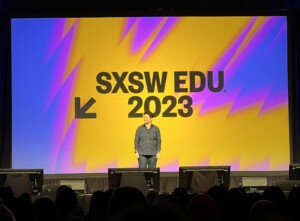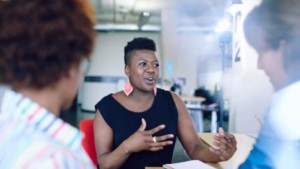New Orleans: A System Transformed

“Soon there will be zero failing schools in NOLA,” said Neerav Kingsland, CEO of New Schools New Orleans. The same could not be said for any other urban center in the country.
Kingsland, keynoted the Moodle conference in New Orleans (#MootUSLA13) yesterday. He recapped the devastation of Katrina and the ensuing opportunity to rethink the education system.
Today about 90% of the 42,000 families send their students to charter schools. The new system was designed around 3 principles:
- Educator run schools: many with local leaders;
- Parents have choice: OneApp means one application, many choices; and
- Public oversight: the government regulates the system.
Kingsland called it an inverted system where “parents and educators have the most power.”
Results. Of the 112 failing schools in Louisiana, only 9 are in New Orleans—and they will be improved or closed.
Compared to the old system, the new schools in New Orleans have learning gains equivalent to 5 months of extra learning. New Orleans has nearly caught the state average in proficiency and college readiness and passed the state average graduation rate. That is “improved but not excellent,” said Kingland, “New Orleans needs 50,000 high quality seats to provide every child with a excellent education” and he estimated that they were half way there.
Can the NOLA model be scaled? New Orleans schools spend about $10,000 per student, or just under the national average. On top of that they’ve raised about $100 million of philanthropy post Katrina.
Kingsland thinks other cities can copy the New Orleans model by replacing or transforming about 5% of schools every year—after10 years that would be replace or update the lower performing half of the system.
The success has been a change in governance more than change in school models. FirstLine Schools is a blended learning network of 4 elementary and 1 high school. He’s particularly excited about adaptive learning products in math and the potential to “make teachers jobs a little more enjoyable.”
Asked about the biggest mistake, Kingland said, “We didn’t think enough about networks early on.” (See recent post on the importance of networks to scaling quality).
On books, Kingsland recommended The Urban School System of the Future, by Andy Smarick and Amanda Ripley’s new book, The Smartest Kids in the World.
For more on NOLA, see








0 Comments
Leave a Comment
Your email address will not be published. All fields are required.